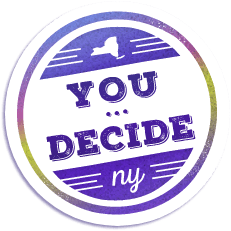Preventing underage gambling is vital to healthy brain development for youth. There are steps we can take to help keep our communities safe from problem gambling.
What Is Underage Gambling?
We consider underage gambling under the age of full brain development. The average brain completes maturation around the age of 24. Therefore, any gambling below the age of 24 is considered underage gambling.
Why Is It A Problem?
Brain Development
Youth’s brain is not yet fully developed to make the best choices. Think of teenagers. How crazy to they seem? How unstable to they seem? This is completely normal. This is a vital stage to their development where they test everything to find out what’s important to them and who they want to be.
Going through this development, a youth’s brain is learning what feels good and what doesn’t. What makes them happy and what doesn’t. If youth are gambling under the age of full maturation, their brains will develop believing that gambling is a way to feel good through an explosion of dopamine (sometimes called the happy hormone).
Decision Making
If they develop a brain that identifies gambling as a coping mechanism, or way to feel happy, they’ve paved the way for an addition to gambling or other unhealthy, risky choices. Underage gambling prevention aims to give youth the best shot at developing a brain focused healthy choices/coping mechanisms.
Therefore, youth are not yet at the point to make the best decisions for themselves, and they need support; our support. We are here to guide them along their journey. One way we can guide them is to help them avoid risky behaviors like underage gabling.
How Can I Help?
Peers, parents and community leaders can all impact their community, families and friends and help prevent underage gambling.
Youth’s Peers
Peers can be a huge support for one another. Teens tend to listen to other teens. They’ve learned from their parents, then their extended family and now they’re moving on to learning from friends. Friends who know about underage gambling risks and ways to stay safe are a fantastic resource to help prevent their peers from underage gambling and, so, problem gambling. Peer efforts to help peers matter.
Youth’s Parents
Parents still offer a huge influence to their kids’ choices and behaviors. Parents can educate themselves on underage gambling, but don’t need to know everything. And with this new knowledge, start a conversation with their kids about underage gambling. They can state, “I don’t approve of underage gambling”. Without hearing the words, youth may assume that their parents see underage gambling is acceptable activity. Parents talking to their kids matter.
Local Community Influencers
Community Influencers can make changes within local communities to help prevent underage gambling and impact the community environment. By establishing policies for gambling-free events and locations, they create safe spaces for youth. Community actions to reduce underage gambling matter.
What Resources Are Available?
There are many resources available to help reduce gambling availability to youth and help prevent underage gambling. Take a look through this website for resources. The website dedicates resources for peers, parents and community influencers. Take a look and enjoy learning about underage gambling, and actions that can be taken to prevent it.
Additional Support
If someone is struggling with a gambling problem, resources, support and services are available through local Problem Gambling Resource Center. There, callers get an immediate answer from a trained, caring professional dedicated to connecting callers to the resources and support services they’re looking for. Support is available, resources are here to help and, most importantly, individuals and families struggling with underage and/or problem gambling are not alone.
